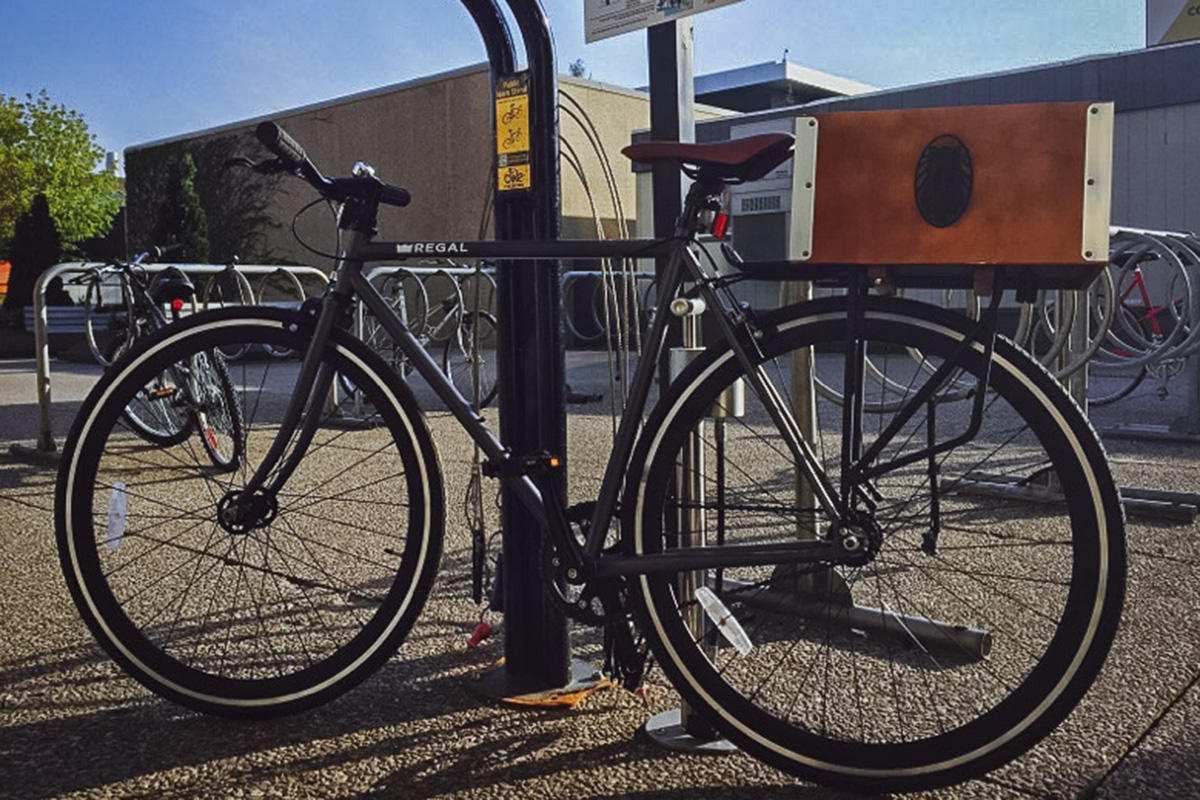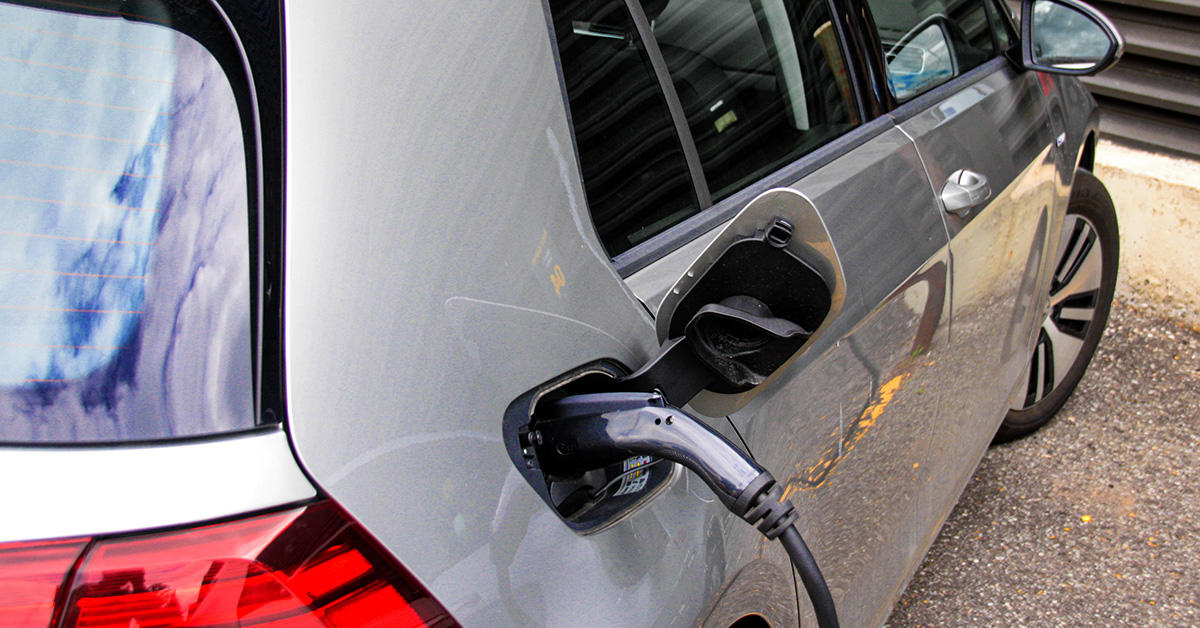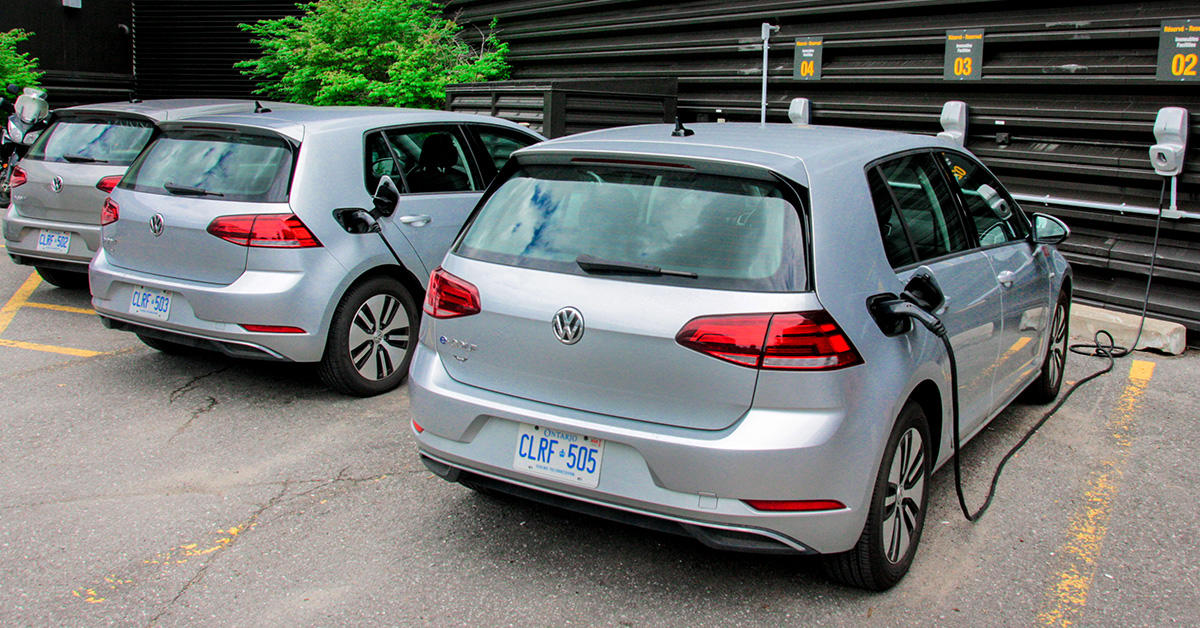
Although fewer people are making their way to and around campus in person these days, sustainable transportation remains a priority for the University of Ottawa. Here are a few initiatives that the University’s facilities team has implemented to help keep campus green and clean.
New bikes for our facilities team
Before the pandemic, many people were riding their bikes to get around campus. Now, with uOttawa’s gradual reopening this fall, mandatory workers on our facilities team want to keep this trend alive.
Since 2017, seven bicycles have been available to facilities personnel, including electricians and plumbers, so they can easily get around campus without having to take a car. Two more bikes were added to the fleet this summer, to cater to growing demand.
From time to time, other uOttawa staff are seen rolling around campus on these bikes.
“We never say no to staff!” says Jonathan Rausseo, sustainability officer at Facilities. “Someone who is based on the main campus and who goes to Lees campus two or three times a week can borrow a bike for a few hours each time. The multi-use pathway that connects the two campuses makes things quite easy.”
Online training through the CanBike website is mandatory before borrowing the bicycles.
“The training goes over the basics to remind you how signaling is done, for example,” says Rausseo. “We otherwise ask staff to avoid using the bikes at night or in the rain and to always wear a helmet, which we can provide.”
Worried about COVID-19 and basic sanitation? Industrial strength disinfecting wipes are available to clean off the bikes, helmets and other equipment.

Electric cars will help reduce CO2 emissions on campus
Sometimes bicycles aren’t always a viable option, so Facilities decided to step up its sustainability game this year with the purchase of four electric cars. Rausseo says this initiative will help uOttawa reduce its CO2 emissions from 29 to 13 tons annually.
“Surprisingly, a lot of our personnel had never driven an electric vehicle before,” says Rausseo. “Most were impressed by their performance.”
In addition, the University has reduced its number of cargo vans and trucks, replacing them with light commercial trucks. The smaller size vehicles are also much safer on campus.
“The previous giant vans were hard to maneuver around campus with all the barricades that were installed to become a car-free core.”
Rausseo points out that the idea behind the barricades is not just about getting rid of cars — clean air and safety are the main issues.
“We work really hard to ensure that the quality of air indoors is top notch. So, to all of a sudden have people step outside into the fumes of idling vehicles everywhere, doesn’t really make sense.”
Facilities is also looking at purchasing smaller electric vehicles, like golf carts, to get around campus.
More electric vehicle parking
Facilities’ commitment to taking more ecologically-responsible actions also includes expanding the number of electric vehicle parking spots available on university grounds. The first new spots will be located at Lees campus, where the new Health Sciences building is under construction.
About 16 level one charging stations are already available on campus, which take 12 hours to completely recharge a vehicle. These types of stations meet the needs of staff who work night shifts.
“We’re looking to install several level two charging stations that can charge a car in about four hours. These will be great for students who have several classes and staff who work on campus.”
When the demand is there, Facilities will evaluate the possibility of adding level three charging stations that complete a charge in about 20 minutes.
The University has long been committed to becoming a more sustainable campus. Visit the University’s Office of Campus Sustainability website for more information.
